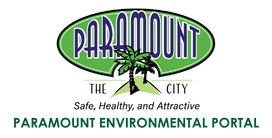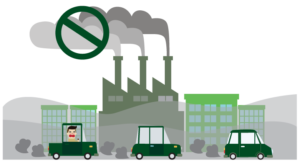The Los Angeles Regional Water Quality Control Board has issued a Notice of Violation to Aerocraft Heat Treating Company on March 10, 2017 for its stormwater runoff.
Like most industrial businesses, Aerocraft operates under a National Pollutant Discharge Elimination System (NPDES) General Permit for stormwater discharges associated with industrial activity. As specified in the General Permit, Aerocraft is required to develop a Storm Water Pollution Prevention Plan (SWPPP); in this plan, the company must identify potential sources of pollution and describe specific best management practices (BMPs) that will be implemented to eliminate or reduce stormwater pollution from the facility.
On January 10, 2017, a Regional Board inspector visited the facility to determine compliance with the General Permit. The inspector reviewed the Permit Registration Documents and walked the perimeter of the business, observing two violations. The first is a violation of the SWPPP: the map of Aerocraft shows discharge points and drainage areas that are currently discharging stormwater runoff offsite. Stormwater from these points is not being collected and analyzed for water quality.
Secondly, rusty metal, scrap metal parts, various types of alloys, titanium parts, and other unidentified metals were stored outdoors without any BMPs in place. At the time of the inspection, all metal stored outdoors was in direct contact with stormwater runoff and discharging offsite. This is a violation of General Permit Section X.H., regarding best management practices.
Aerocraft is required to immediately revise the facility’s site map to show all points of stormwater discharge and collect stormwater samples from the areas as required. The business must also immediately cover and raise all rusty metals exposed to precipitation on the site above ground. Following this, Aerocraft must submit a written response with photographic evidence in which the business identifies the measures taken to comply with the Water Board’s requirements by April 10, 2017.
The official Notice of Violation can be viewed via this link.
The City’s drinking water is not considered at risk because of this violation. The City’s drinking water comes from very deep groundwater wells. The violations identified during this inspection solely focus on rainwater and runoff which is conveyed by pipes and concrete lined channels out to the ocean after a storm.


Comments are closed.